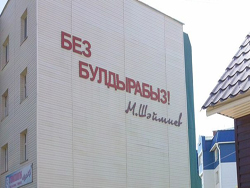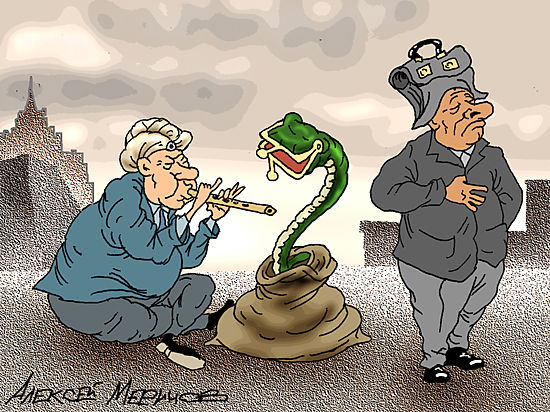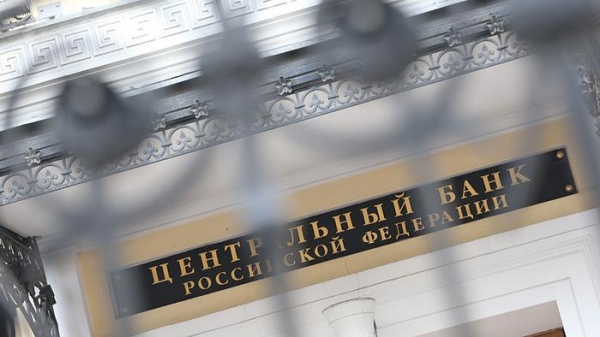
The anti-crisis plan of the government is unsystematic, “random”, the crudity of the measures proposed
The audit chamber (SP) once again, according to the newspaper “Vedomosti” filed a serious claim to the Federal government for the implementation of anti-Crisis plan in the current year.
In 2015, analysts at SP pointed to three major defects that afflict the implementation of anti-crisis measures: some government activities do not have a significant effect on the economy, some were prepared late, and others were not actually needed because the money to reach their destinations with delays.
As for the year 2016 — the plan is being fulfilled at an unacceptably slow pace in the first half of the year, the government had to implement most of it is the measures specified in paragraphs 72 (a total of 120), but sold only about half.
While the government went on a deliberate silence, when it was not indicated what is considered compliance with part measures — preparation of draft laws or have their acceptance. Press Secretary of Prime Minister Natalia Timakova declined to comment the conclusions of the accounting chamber.
Like last year, the plan is executed in two stages: first the adoption of regulations, the second is the distribution of money. For the first six months, the government had to make laws on 62 points, another 9 — to submit reports and directives. However, by July ready were regulations only 35 measures (48,6%), 30 points were not implemented at all.
Financing failure altogether is obvious: money was allocated for only two 2 points of the plan… 38. So, medications for HIV patients in the draft anti-crisis plan was RUB 21 billion, and by 15 July of the current year, the regions only received 8.5 billion rubles. For reference: in 2015 on the dynamics of the epidemic, the Russian Federation, according to UN figures, has overtaken even South Africa. To support patients with hemophilia were allocated only 25.7% of the originally promised amount.
Obviously not enough resources have been focused on the support of a number of industrial sectors — automobile and light industry, agriculture and transport. But even that has always been considered in recent years for the government priority is to support farmers — stood “with great difficulty”.
Evident that even after a big PR firm in 2015, which seems to be convinced of the necessity of import substitution (especially in agriculture), not made a point about his support in agriculture. In July 2016 road map of the Ministry of agriculture is still being coordinated with other ministries.
The difference between the amount pledged in the Crisis management plan, and the amount actually received by the addressee, is suggestive of a targeted (or untargeted) nature of expenses.
Another fact documented by auditors of the Ministry Tatyana Golikova: agricultural equipment manufacturers promised to 9.9 billion rubles, but by mid-July, they received only 5.2 billion rubles.
Subsidizing transport manufacturers is also not done — the company JSC “RZD” was promised 39,8 billion rubles for the purchase of traction rolling stock. Until the end of may JSC and the Ministry of transportation continued work on the passport project, the production of electric locomotives managed to reduce by 20.3% in the same period of 2015.
It doesn’t matter and with the support of small and medium — sized businesses about the relevance of the full development which never tires of talking Dmitry Medvedev. As of mid-July, subsidies for small business support was not provided at all, “SME Corporation” not received the state guarantees on loans to small business or property fee for the leasing of equipment to small and medium enterprises.
Meanwhile, the accounts chamber of the Russian Federation in 2015 revealed about 3,5 thousand violations totaling 516,5 billion. These data derive from report of the accounting chamber in the year 2015, approved by the State Duma.
The protocols of inspections of auditors SP failed to provide refunds to the Federal budget and the budget of the Union state in the amount of 10.3 billion rubles. According to the chamber, was initiated 40 criminal cases and 299 cases of administrative offences.
It’s very simple: if there was a real anti-crisis program, and if it is properly executed, it would be no crisis was not, — commented the results of the last audit SP Director of the Institute of strategic analysis FBK, doctor of economic Sciences Igor Nikolaev. — The list of activities handled by the government and as indicated by the chamber, many of those that look, I would say, strange. As, for example, for a professional competition, served as a crisis event — the national championship “Young professionals” World Skills, which was allocated a lot of funds.
In addition, the government is now many points the fiduciary nature, “prepare”, “make a plan”, etc. But it does not mean that certain stocks or undertakings will be accepted and eventually implemented.
— What program that has such an important direction as the neutralization of the crisis phenomena, is the “dry residue”?
— “The bottom line” we are dealing with the bureaucratic contrivances, which, in fact, always sinned the government. But, in my opinion, the anti-Crisis plan, which is currently the government lies at the core of his work, is particularly distinguished for its haphazard, “accidental”, the crudity of the proposed measures.
The main complaint that can be addressed to the developers of this plan, for the substance of the crisis — you can not fight it, not realizing its nature. If it is a structural crisis, as show in the first place in this anti-crisis plan, how to resolve structural problems.
And the government instead begins to divide increasingly is lacking the financial “pie” today, we need to give those, tomorrow — the day after tomorrow the third. Informative, ideologically, the plan is not allocated to it as a crisis. It is therefore not surprising that its performance is, as they say, neither good, nor bad.
— Unfortunately, the anti-crisis program is reduced to an endless latania emerging “holes”, and not to systemic reform, reflecting the interests of the majority of Russians, — the Chairman of the all-Russian public movement “For fair market” Ilya handrikov. — The anti-crisis plan lacks clear objectives that should be clearly stated.
If we have a structural crisis, not just economic, respectively, shall be the aim of addressing the structural imbalances in the economy, especially among vulnerable sectors of society and receive stably high income and windfall.
Similarly in Russia the strong disparities between the public sector and the private, between big business and small. And these disparities, escalating already, it would seem, almost insoluble contradictions make themselves felt in virtually all sectors and industries.
The government in this critical situation prefers to do highly technical things, nothing out of the crisis it really does not. And I absolutely agree with the conclusions of the accounting chamber, because it is already becoming obvious to economists and politicians that without any reforms to overcome the crisis will be.
The main conflict is between the conservative policy (which does not oppose the degradation of the economy, but on the contrary, it only multiplies, preserves), and the challenges facing the country.
Of course, while we have this conflict will begin to resolve, we will not move from the spot. But we must soberly assess the capabilities we have today: even after the reforms, the country will need at least five years. But now even on the horizon, not any progress, so started something similar in this direction. From the number of authority officials no one does anything, and the situation is getting worse.
Instead, society should be content with macro-projects, — as, for example, a football Championship-2018. The index to pensioners, to education, according to the famous words of Medvedev, no money, but for such expensive event of their lacking in abundance.
The only “progress” that it is impossible not to notice — already included the printing press as an urgent need to stop here and there occur holes in the budget and to pay for the huge debts accumulated, somehow calming the population.
And, very importantly, to eliminate disparities, we need political will. But it is not, and so the economy is once again acting as the derived value from the policy.








